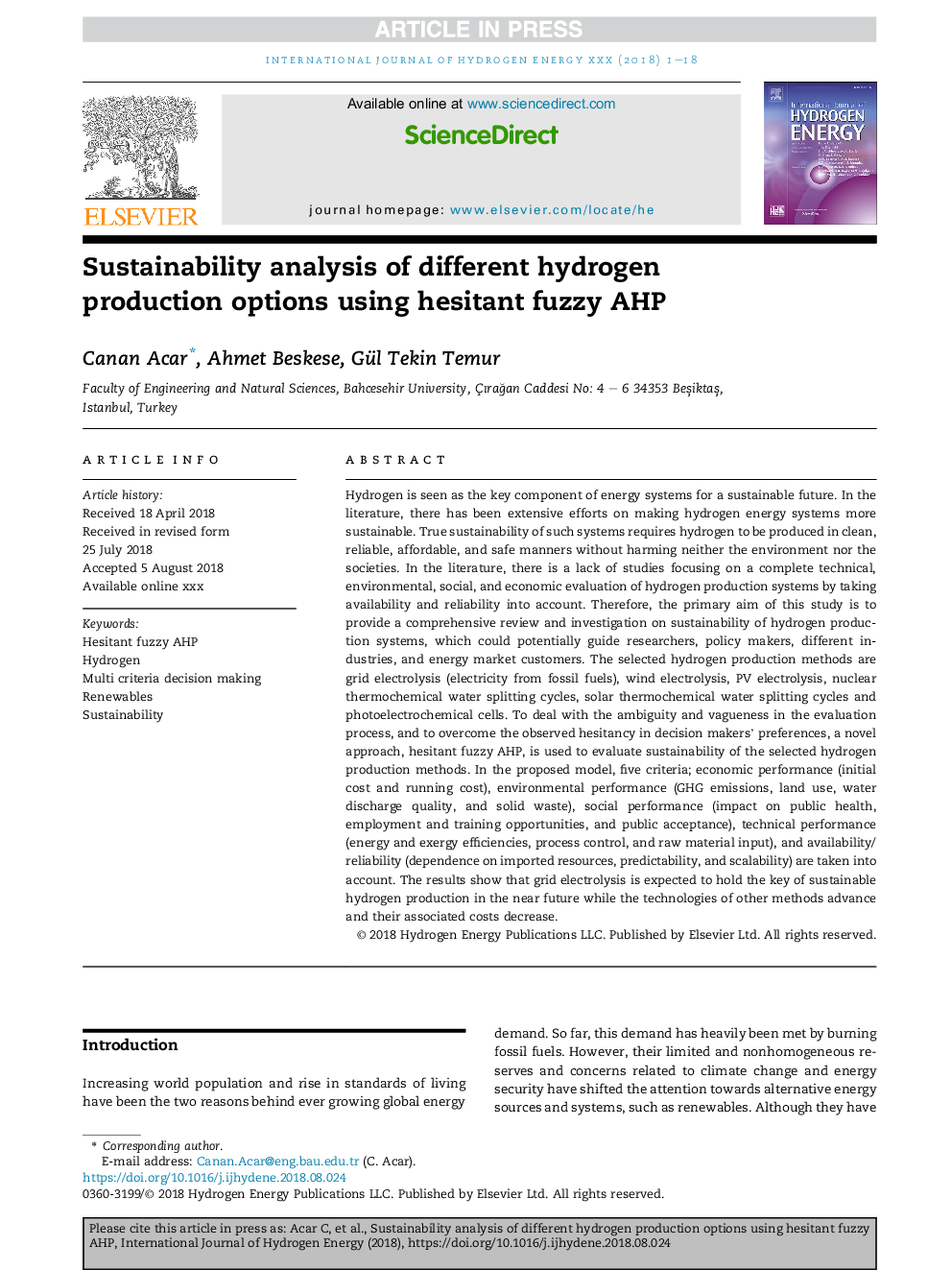| Article ID | Journal | Published Year | Pages | File Type |
|---|---|---|---|---|
| 10154617 | International Journal of Hydrogen Energy | 2018 | 18 Pages |
Abstract
Hydrogen is seen as the key component of energy systems for a sustainable future. In the literature, there has been extensive efforts on making hydrogen energy systems more sustainable. True sustainability of such systems requires hydrogen to be produced in clean, reliable, affordable, and safe manners without harming neither the environment nor the societies. In the literature, there is a lack of studies focusing on a complete technical, environmental, social, and economic evaluation of hydrogen production systems by taking availability and reliability into account. Therefore, the primary aim of this study is to provide a comprehensive review and investigation on sustainability of hydrogen production systems, which could potentially guide researchers, policy makers, different industries, and energy market customers. The selected hydrogen production methods are grid electrolysis (electricity from fossil fuels), wind electrolysis, PV electrolysis, nuclear thermochemical water splitting cycles, solar thermochemical water splitting cycles and photoelectrochemical cells. To deal with the ambiguity and vagueness in the evaluation process, and to overcome the observed hesitancy in decision makers' preferences, a novel approach, hesitant fuzzy AHP, is used to evaluate sustainability of the selected hydrogen production methods. In the proposed model, five criteria; economic performance (initial cost and running cost), environmental performance (GHG emissions, land use, water discharge quality, and solid waste), social performance (impact on public health, employment and training opportunities, and public acceptance), technical performance (energy and exergy efficiencies, process control, and raw material input), and availability/reliability (dependence on imported resources, predictability, and scalability) are taken into account. The results show that grid electrolysis is expected to hold the key of sustainable hydrogen production in the near future while the technologies of other methods advance and their associated costs decrease.
Related Topics
Physical Sciences and Engineering
Chemistry
Electrochemistry
Authors
Canan Acar, Ahmet Beskese, Gül Tekin Temur,
